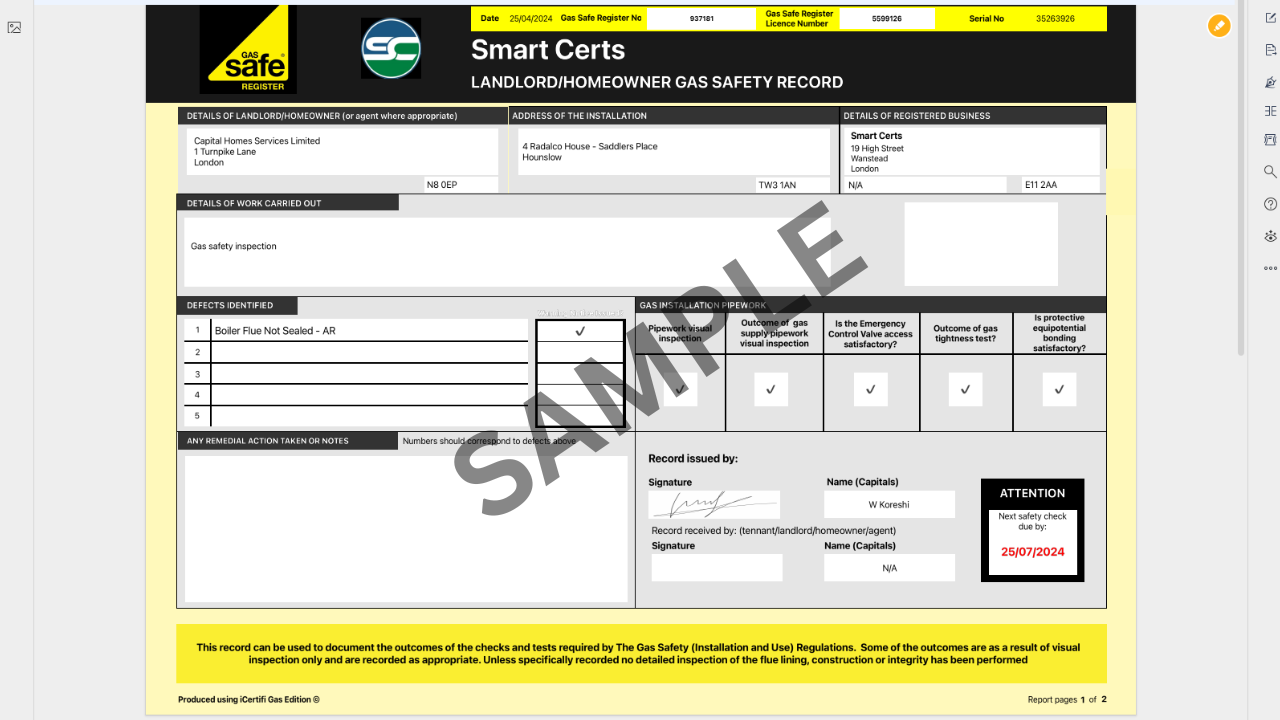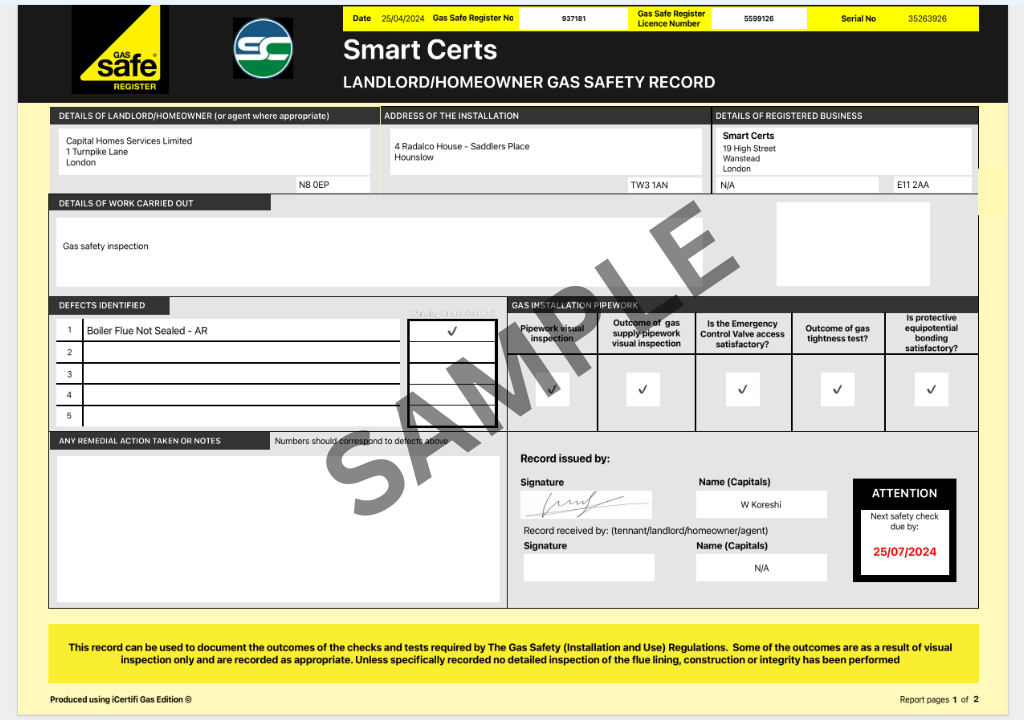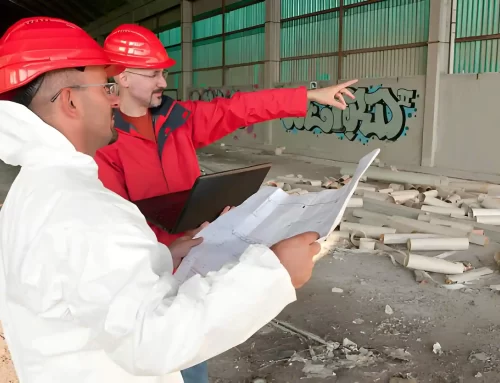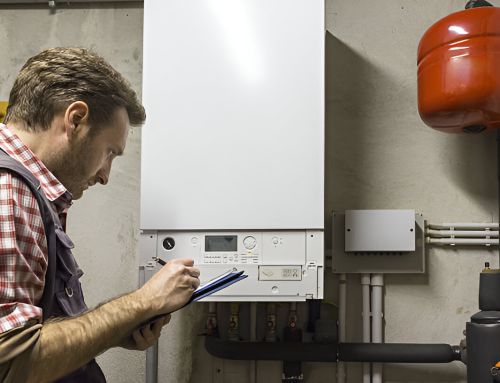
When you first lay eyes on a gas safety certificate, it’s like uncovering a treasure trove of crucial information that guarantees your home’s safety.
The document reveals intricate details about your gas appliances, the inspection process, and any identified issues, serving as a vital record of compliance.
But what exactly does this certificate entail beyond the surface details?

Let’s unravel the layers of this essential document to understand its full significance and implications for your home’s safety and legal obligations.
Gas Safety Certificate Content
How does the Gas Safety Certificate content provide crucial information about the safety and compliance of gas systems?
The certificate includes a detailed inspection checklist covering safety regulations and appliance details. It lists all inspected gas appliances, noting the make, model, and location of each. The engineer qualifications are outlined, including the Gas Safe registration number and contact information.
Each appliance undergoes a safety check, with results documented as pass or fail, along with any issues found and repair recommendations. The certificate’s validity period is specified, ensuring regular inspections for system safety.
In essence, the Gas Safety Certificate content serves as a comprehensive record of the inspection process, demonstrating compliance with safety regulations and ensuring the safe operation of gas systems.
Landlord Gas Safety Certificate Requirements
Moving from discussing the Gas Safety Certificate content, let’s now focus on the Landlord Gas Safety Certificate Requirements that mandate an annual safety check by a Gas Safe registered engineer. Landlord responsibilities include ensuring gas appliance maintenance, conducting annual inspections, and adhering to compliance regulations to prioritize tenant safety.
Failure to comply can result in criminal offense charges and penalties of up to £6,000 per offense. Regular safety checks not only uphold legal obligations but also safeguard both landlords and tenants from potential hazards. To provide a clearer overview, let’s examine the key requirements in the table below:
| Landlord Responsibilities | Details |
|---|---|
| Gas Appliance Maintenance | Regular servicing recommended |
| Tenant Safety | Ensuring gas safety |
| Annual Inspections | Conducted by Gas Safe engineer |
Gas Safety Record and Maintenance
Regularly issued after a safety check, the Gas Safety Record contains comprehensive details of all conducted checks. This document must be provided to existing tenants within 28 days and includes maintenance schedules for gas pipework, appliances, and flues.
Annual servicing by a Gas Safe engineer is recommended to ensure appliance safety. Landlords are required to retain copies of these records for two years to demonstrate compliance with safety regulations.
Following a structured maintenance schedule and implementing necessary safety measures are vital for the ongoing safety of the gas system. Adhering to annual servicing and maintaining gas appliances in good working order not only ensures tenant safety but also fulfills legal obligations regarding gas safety.
Compliance Documentation
After ensuring that gas safety records are properly issued and maintained, the focus shifts to the meticulous documentation requirements outlined within compliance standards. Compliance evidence is crucial, showcasing detailed safety measures, maintenance records, test results, and inspection details.
These documents provide essential proof of adherence to gas safety regulations, demonstrating a commitment to regular maintenance and ensuring tenant safety and legal compliance. The test results must be accurately recorded, including any issues found during inspections and recommended repairs.
Each safety check conducted should be documented thoroughly to meet the stringent requirements set forth by regulatory bodies.
Legal Obligations and Penalties
Ensuring annual gas inspections are conducted is a legal requirement for landlords, with penalties for non-compliance reaching up to £6,000 per offense. Gas safety regulations mandate that landlords must prioritize safety inspections to uphold tenant well-being.
Regular safety checks not only protect tenants but also shield landlords from potential hazards, ensuring compliance with legal obligations. Failure to comply can result in severe legal consequences, including criminal offense charges and hefty fines.
Landlords must understand their responsibilities in conducting thorough safety inspections to avoid penalties and legal ramifications.
Compliance proof is essential in demonstrating adherence to gas safety regulations, safeguarding both tenant safety and legal compliance.
Property Transaction Information
To initiate a property transaction, it’s crucial to consider the property price as a fundamental factor in the process. Property valuation plays a significant role in determining the value of the property. Additionally, stamp duty may need to be paid based on the property price and local regulations.
Once the property price is established, booking a property valuation with a qualified professional is recommended to ensure an accurate assessment. After the valuation, making an offer on the property is the next step in the transaction. It’s essential to provide confirmation details, such as financial proof and identification, when submitting the offer to the seller for consideration.
Confirmation of these details is required to proceed with the property transaction smoothly.
Frequently Asked Questions
Can a Tenant Request a Gas Safety Certificate From Their Landlord at Any Time, or Is There a Specific Timeframe in Which It Must Be Provided?
As a tenant, you have the right to request a gas safety certificate from your landlord at any time. Landlords must provide this certification annually to comply with legal obligations, ensuring timely safety checks for tenant welfare.
Are There Any Specific Requirements for Gas Safety Certificates in Commercial Properties Compared to Residential Properties?
In commercial properties, gas safety certificates adhere to specific regulations, emphasizing thorough inspections and compliance with commercial standards. Residential requirements focus on standard safety protocols, reflecting differences in property use and maintenance obligations. Landlord obligations vary based on property type and occupancy.
How Can a Landlord Ensure That Their Gas Safety Certificate Is Valid and up to Date, Especially if They Own Multiple Properties?
To ensure my gas safety certificates are valid and up to date for multiple properties, I verify them annually with Gas Safe registered engineers. I prioritize these checks to fulfill landlord responsibilities and maintain safety precautions.
Are There Any Additional Safety Measures or Inspections Recommended for Gas Appliances Beyond the Annual Gas Safety Check?
When it comes to gas safety, beyond annual checks, additional precautions like carbon monoxide alarms and regular maintenance are crucial. Meeting inspection standards ensures compliance, protecting tenant rights and meeting commercial regulations. Valid certificates are essential.
What Should a Tenant Do if They Suspect a Gas Leak or Safety Issue in Their Rental Property, Even if a Recent Gas Safety Certificate Was Issued?
If suspecting a gas leak, prioritize safety by evacuating, ventilating, and not using electrical devices. Contact landlord immediately, report the issue, and seek professional inspection. Landlord must respond promptly to ensure tenant safety and address maintenance issues.
Conclusion
In conclusion, the gas safety certificate is a crucial document that provides detailed information about the safety and compliance of gas systems in a property. It includes specific details about inspected appliances, any issues found, and recommendations for repairs.
Understanding the content and requirements of this certificate is essential for ensuring the safety of occupants, legal compliance, and peace of mind in any living space. Regular inspections and maintenance are key to maintaining a safe and compliant gas system.
About the Author: LandlordCertificate
Related Posts
Get Social
Recent Posts
- Electrical Diagnostic London: How Professional Testing Keeps Your Property Safe and Compliant
- Asbestos Management Survey London: Update Your Property Records
- Gas Safety Certificate London: Why Regular Checks Save Money Long-Term
- FRA London Explained: How a Professional Fire Risk Assessment Keeps You Compliant and Safe
- When a New Tenancy Requires Your EICR Certificate London Renewal













